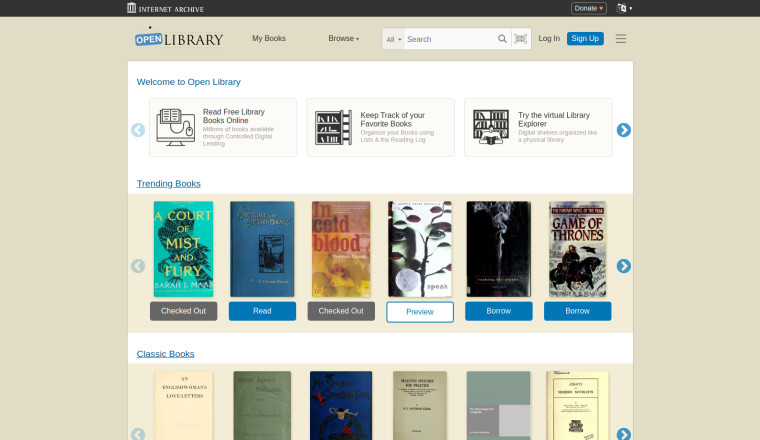
The Internet Archive has announced that it has lost a lower court ruling against the book publishers Hachette, HarperCollins, Wiley, and Penguin Random House in a case about its Controlled Digital Lending programme. The Internet Archive said that the decision will impact libraries across the United States that rely on controlled digital lending, it said it hurts authors by saying “unfair licencing models” are the only way books can be read online, and finally, that it hurts people seeking information online.
“Libraries are more than the customer service departments for corporate database products,” Internet Archive founder Brewster Kahle said. “For democracy to thrive at global scale, libraries must be able to sustain their historic role in society – owning, preserving, and lending books. This ruling is a blow for libraries, readers, and authors and we plan to appeal it.”
The case against Internet Archive relates to its Open Library, a website where users can sign up and loan books for a period of time. The publishers criticized Open Library in several ways, notably, it said that Open Library distributes 1.3 million scanned books and states it wants to distribute millions more; the publishers said this “grossly” exceeds legitimate library services and constitutes piracy on an “industrial scale”.
The publishers also claimed that they support public libraries and recognize the benefit they have to society. They said their partnership with libraries sees public libraries buying print books or licensing ebooks from publishers via book wholesalers or library ebook aggregators. It said Open Library works nothing like this and is infringing the Copyright Act.
Following the COVID-19 outbreak, the Open Library changed its rules to allow an unlimited number of people to access the books in response to libraries and schools closing. The publishers challenging Internet Archive said this was an opportunistic move to expand its cause.
In the case, Judge John Koeltl said that Internet Archive had created derivative works and therefore needed to get permission from the copyright holders to lend them out online.
Source: Internet Archive via The Verge
















3 Comments - Add comment